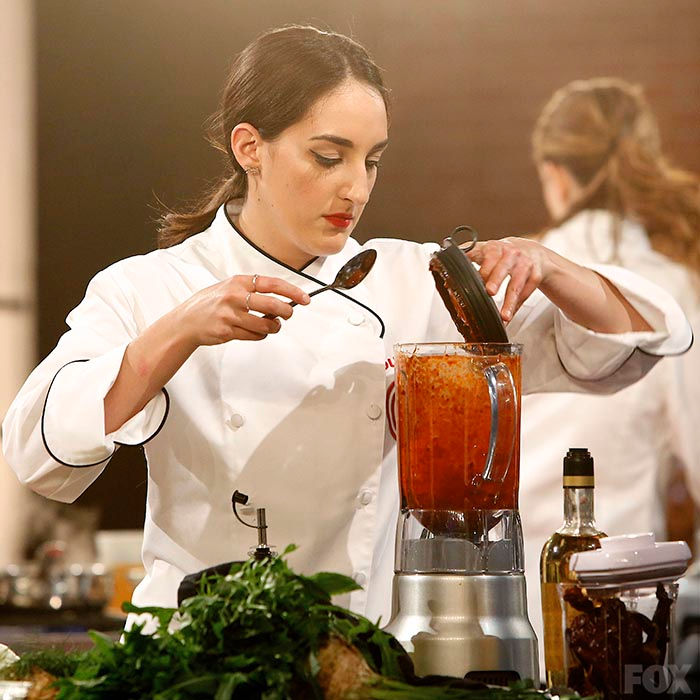Recognizing Our Need For a Real Food Revolution

The dramatically placed commercial breaks, the fadeouts, and the close-up of the glass trophy that means everything to the contestants…intensely cheesy is an understatement. When my boyfriend first told me about “MasterChef” and that I had to watch it, I chuckled and conceded, “Okay, sure.” More just to please him than anything else, I found the first episode of Season 5, which started this May, on YouTube and made sure I had my phone close by to distract myself, convinced I would be bored by the nonstop cooking and Gordon Ramsay’s yelling. Sure, I love food, but an entire show dedicated to home cooks fighting it out over gourmet dishes? No thanks; I’ll stick to “Blacklist.”
But he was right. Once I started, I couldn’t stop. Who could “put their heart onto a plate?” Which contestant would make a dish so terrible that Joe Bastianich, the terrifying judge who is an Italian restauranteur, would spit it out? Would Leslie and Ahran work out their differences? The drama was entertaining, but I was also attracted to the gorgeous, technically difficult food. At first I was embarrassed by my newfound addiction, but when I admitted it to my friends abroad, they excitedly discussed the contestants and cooking with me, also fans of the show.
Fox has produced one of the most popular cooking shows in the United States, which now has over twenty iterations in nations across the globe. In it, “the nation’s best home cooks” battle it out in various cooking competitions for the $250,000 prize, a cookbook deal, and the coveted trophy and title of MasterChef.

What has made this seemingly inconsequential show so popular? Why is it that not just me, an admitted foodie, but also my friends both at Penn and abroad find the show addicting? I would argue that it’s for the same reason that food blogs such as this are so prevalent. And for the same reason that we all get overly excited to shell out $30 to visit Philadelphia’s top restaurants. And for the same reason that half of Instagram seems to be of #yum food posts some days. This reason may not be so shallow as we think. Why? There is a food revolution happening, a recognition of the important role that meals play in our lives.
People know that America has a troubling relationship with food. There are shelves of books and documentaries about obesity, poor nutrition, unequal distribution of healthy foods, our tendency to eat on the run, and the chemicals and preservatives with which our food is stuffed chock full. Michael Pollan, “Food, Inc.” and others have opened America’s eyes to these issues. From the 1960s, when frozen meals arrived, we’ve lost a lot of the emotional connection with food. We’ve devalued foods- which can be used to connect us, to fuel our bodies for health, and to serve as an intense sensory experience- into “food products.” It’s impossible to succinctly explain the American relationship with food and its interconnection with politics, economics, and a changing society. I will not attempt to do so within the confines of this blog post, but encourage you to think about the role that food, real food, plays in your life. Food can hold great power. It can make us healthy or unhealthy; it can connect us with our loved ones and our heritage; it can support companies or farmers who we believe in; it can destroy or cultivate the environment.
We may enjoy a Snickers bar between classes or a Pumpkin Spiced Latte to fuel our studying, but where has the ability to whip up meringues to enjoy with friends gone? Where has the desire to steam clams or roast duck gone? Do you put your heart on the plate or do you put easily-prepared-and-healthy-enough food products on the plate?

I believe that the reason I, and others, am so drawn to MasterChef, Restaurant Week, farmers markets, and that some of us attempt to learn to cook on our own is because we recognize our country’s problematic recent history of eating. I encourage you to embrace this recognition of the importance of food and to join in revolutionizing how we, America’s youth, eat. Let us dare to have food that is truly healthy- for our bodies, for our souls, for our relationships, for our environment, and for our communities. I believe that real, whole food holds great power. If we take the time to slow down, cook real meals with real ingredients and eat them in the company of those we love, great things may happen. I’m not saying that we all need to know how to perfectly poach eggs, create gnocchi from scratch or make the perfect lobster (I certainly don’t), but we can all make steps towards preparing and eating real food.
So put on an episode of MasterChef or get a group of friends together to recreate a meal you enjoyed at Parc or Fogo de Chao and think about how you can use food to do more than just hold you over between Marketing and Microbiology lectures. Dare to slow down, try (and probably fail at first) to make real meals, and put your heart on the plate. Let’s find the critically important emotional and justice connections with food that the past generations have obscured. Let’s harness the power of food for good.
— Grace Jemison